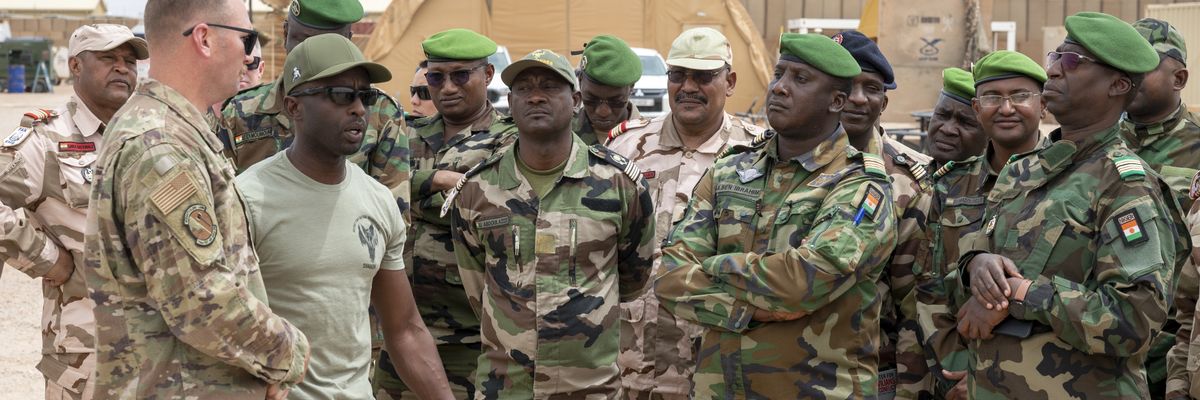After a diplomatic struggle during which service members on the ground were complaining they were being "held hostage," the Biden administration has announced that it is pulling up stakes in Niger at the ruling junta's request.
The junta, which seized power in a coup last August, said it wanted the U.S. out. This occurred last month after a reportedly disagreeable meeting between Niger and U.S. diplomatic officials. Washington has a drone base in Niger and 1,100 Army and Air Force members, who have been conducting counterterrorism operations and training there since the days of the Global War on Terror.
This week, it was reported in the Washington Post that one of those Air Force officers had written to Congress, telling them that service members there were being "held hostage" to the diplomatic back-and-forth and that intelligence on the ground had been withheld by U.S. embassy officials in order to buy time to successfully maintain permission for the American government to stay. This has been denied both the State Department and Pentagon.
The whistleblower also said that deployments had been extended beyond six months because the junta was no longer approving new visas for any Americans.
A woman who said her husband was currently stationed there, contacted RS on Thursday to concur with the whistleblower. She said planes had not been able to fly in or out of Niger for at least two weeks and that the only supplies were getting in via truck. Service members were concerned and told they were not leaving to come home as planned.
"So they're not being told anything other than it could be a few weeks or it could be a few months," she told me. "And that's terrible. Because we already have a problem with getting people to join the military. You might want to take care of the ones we got in."
The DoD press has not returned a request for comment as of this time.
It turns out her husband will be coming home after all, but it is not clear when the demobilization will occur. According to reports on Saturday, U.S. officials have offered no timeline for withdrawal besides talks set to start in the coming days about next steps.
The move will be a blow to the U.S military, which has prized its relationships with the countries of the Sahel and the footprint that comes with it. Washington has poured billions of dollars in aid and equipment into these militaries, but in recent times it has gone sour with coups by commanders who had likely been beneficiaries of American largess and training. Niger has also kicked the French military out, as has Mali. Meanwhile, some of these juntas, including Niger, have been turning to Russia and the Wagner Group for their security needs.
Alex Thurston, a regular RS contributor and non-resident fellow at the Quincy Institute, weighed in on potential impacts in March. "The critical question to ask will not be whether things get worse — security has steadily degraded since approximately 2015 in many parts of the central Sahel — but whether there is any proof that the presence or absence of vast American military expenditures makes any discernible difference."
- USAF whistleblower: US military at risk in Niger ›
- What will happen to US troops stationed in Niger if the region explodes? ›
- Why the Nigerien junta wants to kick US troops out ›
- Niger's accusation of Western chicanery hits close to home | Responsible Statecraft ›















